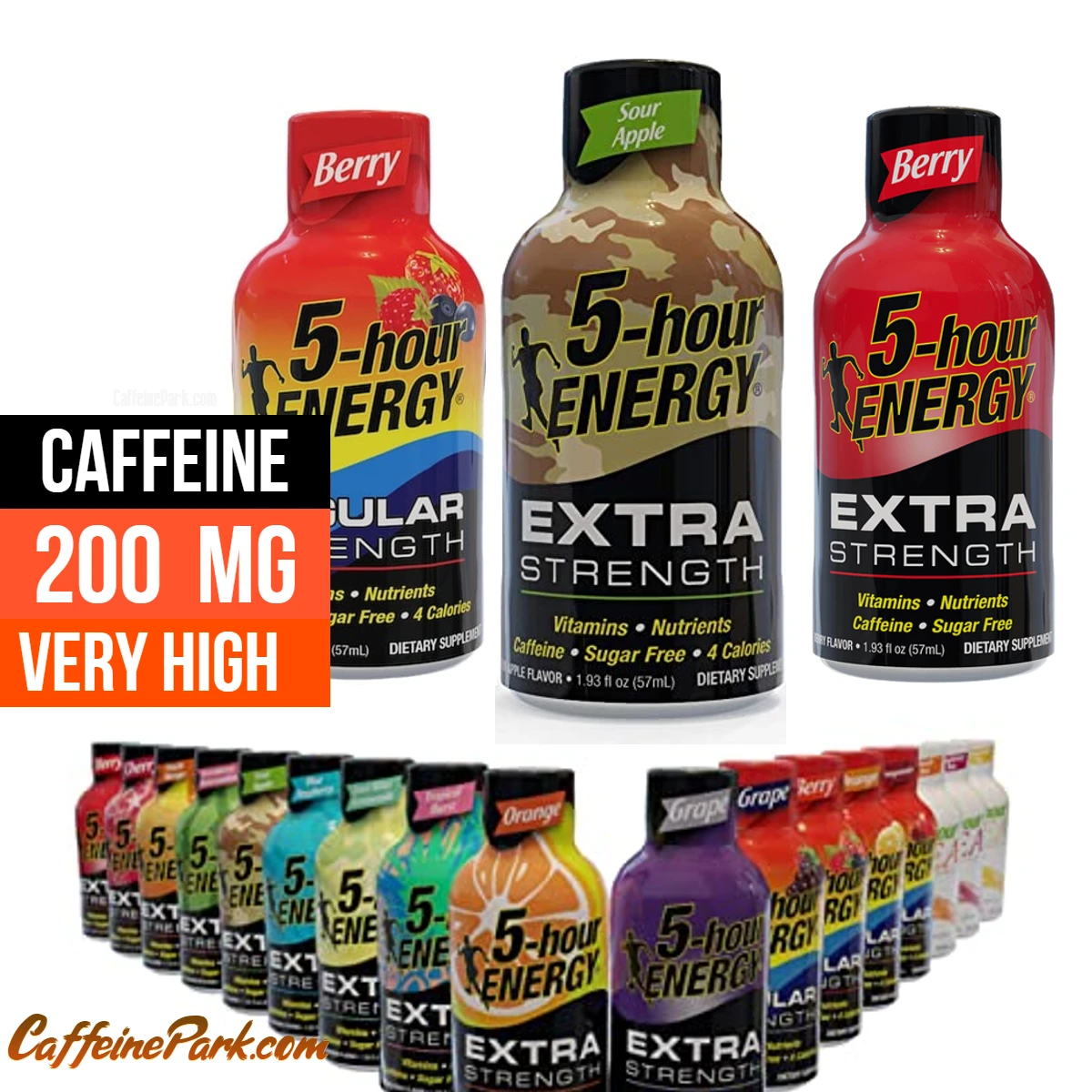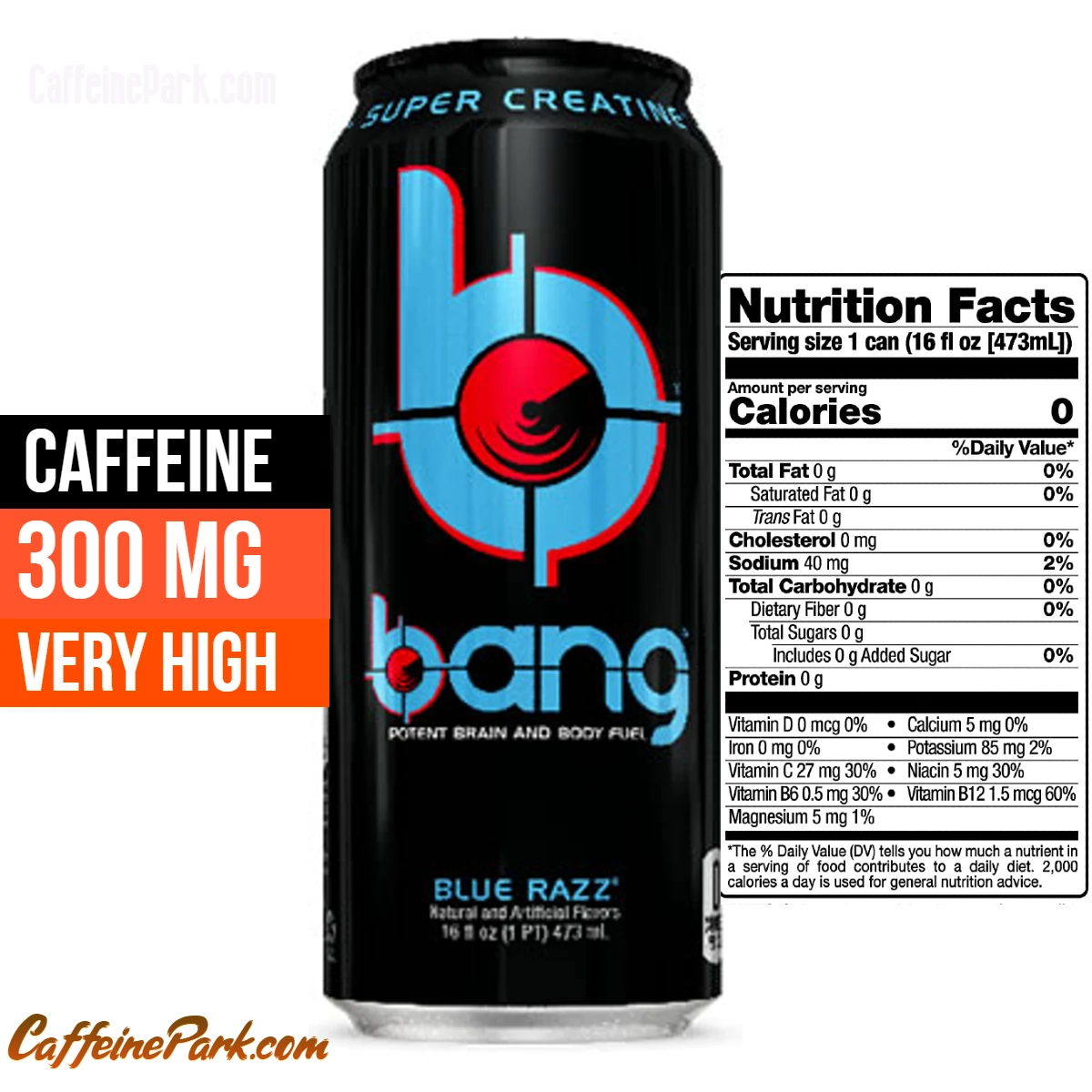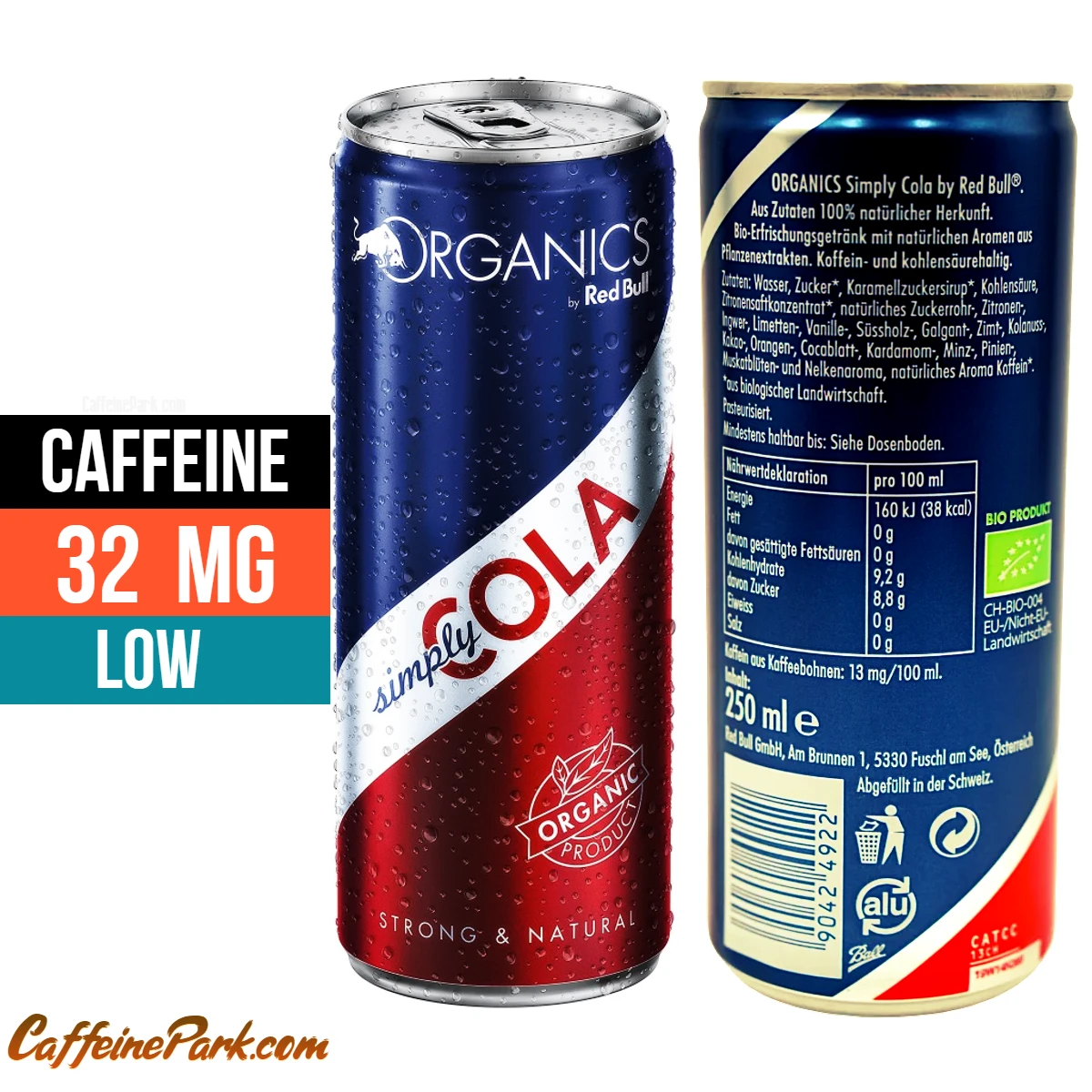Let’s cut right to the chase—caffeine in 5 Hour Energy is a game-changer for millions of people looking for that extra kick to power through their day. Whether you’re a student pulling an all-nighter, a professional juggling deadlines, or just someone who needs an energy boost, this little shot packs a punch. But have you ever wondered what exactly goes into that tiny bottle? How much caffeine is too much? And most importantly, is it safe? Let’s dive in and uncover the truth behind this popular energy drink.
We all know that feeling—when your eyelids start drooping, and your brain seems to be running on half power. That’s where 5 Hour Energy comes in. It’s marketed as a quick fix for fatigue, promising to keep you alert and focused without the sugar crash. But let’s be honest, caffeine is the star of the show here. Understanding how much caffeine is in 5 Hour Energy and how it affects your body can help you make smarter choices about your energy consumption.
Now, before we get too deep into the nitty-gritty, let’s talk about why this matters. Energy drinks have become a multi-billion-dollar industry, and 5 Hour Energy is one of the biggest players in the game. With its small size and bold promises, it’s easy to see why so many people turn to it for a quick fix. But is it all it’s cracked up to be? Let’s find out.
Table of Contents
- Introduction to Caffeine in 5 Hour Energy
- What Exactly is 5 Hour Energy?
- How Much Caffeine is in 5 Hour Energy?
- The Effects of Caffeine on Your Body
- Benefits of Using 5 Hour Energy
- Potential Risks and Side Effects
- How Does 5 Hour Energy Compare to Other Energy Drinks?
- Tips for Safe Consumption
- Alternatives to 5 Hour Energy
- Conclusion: Is 5 Hour Energy Worth It?
Introduction to Caffeine in 5 Hour Energy
When it comes to energy drinks, caffeine is the MVP. It’s the reason why these drinks are so effective at keeping you awake and alert. But not all energy drinks are created equal, and 5 Hour Energy is no exception. This concentrated shot is designed to deliver a powerful caffeine punch without the added sugar and calories you’d find in traditional energy drinks. So, how does it stack up?
The key to understanding 5 Hour Energy lies in its formula. Unlike other energy drinks that rely on large volumes of liquid to deliver their caffeine kick, 5 Hour Energy packs its punch into a tiny 2-ounce bottle. This means that every drop is carefully formulated to give you the energy boost you need. But with great power comes great responsibility, and it’s important to know what you’re consuming.
What Exactly is 5 Hour Energy?
5 Hour Energy is more than just an energy drink—it’s a phenomenon. First introduced in 2003, this little shot has become a staple for people looking for a quick energy fix. Unlike traditional energy drinks that come in large cans, 5 Hour Energy is a concentrated liquid that you can drink straight from the bottle or mix with water. It’s marketed as a no-sugar, no-crash alternative to other energy drinks, making it a popular choice for health-conscious consumers.
- Molly Noblitt Arrested Unraveling The Story Behind The Headlines
- Unraveling The Mystery Who Was Aubreigh Wyatts Bully
Key Features of 5 Hour Energy
- Concentrated formula in a 2-ounce bottle
- No sugar or artificial sweeteners
- Packed with B vitamins and amino acids
- Available in various flavors, including original, sugar-free, and extra strength
But what really sets 5 Hour Energy apart is its caffeine content. While the exact amount of caffeine isn’t always disclosed on the label, it’s generally accepted that a single serving contains around 200-250 milligrams of caffeine. That’s roughly equivalent to two to three cups of coffee, depending on the brand.
How Much Caffeine is in 5 Hour Energy?
Alright, let’s get down to brass tacks. How much caffeine are we talking about here? According to the manufacturer, a single serving of 5 Hour Energy contains approximately 215 milligrams of caffeine. However, this number can vary slightly depending on the flavor and strength of the product. For example, the Extra Strength version contains even more caffeine, clocking in at around 242 milligrams per serving.
Now, let’s put that into perspective. The average cup of brewed coffee contains about 95 milligrams of caffeine, so a single serving of 5 Hour Energy is roughly equivalent to two and a half cups of coffee. That’s a lot of caffeine in a very small package. But how does this compare to other energy drinks? Let’s take a look.
Caffeine Comparison Chart
| Energy Drink | Caffeine Content (mg) |
|---|---|
| 5 Hour Energy (Original) | 215 |
| 5 Hour Energy (Extra Strength) | 242 |
| Red Bull (8.4 oz) | 80 |
| Monster Energy (16 oz) | 160 |
As you can see, 5 Hour Energy packs a serious caffeine punch compared to other popular energy drinks. But with great power comes great responsibility, and it’s important to consume it in moderation.
The Effects of Caffeine on Your Body
Caffeine is a natural stimulant that affects the central nervous system. When consumed, it blocks the effects of adenosine, a neurotransmitter that promotes sleep and relaxation. This leads to increased alertness, improved focus, and a boost in energy levels. But like anything else, too much caffeine can have negative side effects.
Common effects of caffeine consumption include:
- Increased heart rate
- Heightened alertness
- Improved mood
- Reduced fatigue
However, excessive caffeine intake can lead to jitteriness, anxiety, and even insomnia. It’s important to find the right balance to avoid these negative side effects.
Benefits of Using 5 Hour Energy
Now that we’ve covered the basics, let’s talk about the benefits of using 5 Hour Energy. For starters, it’s a convenient way to get a quick energy boost without the added sugar and calories found in many other energy drinks. Its small size makes it easy to carry around, and its concentrated formula ensures that every drop counts.
In addition to caffeine, 5 Hour Energy also contains a blend of B vitamins and amino acids that work together to support energy production and mental focus. This makes it a popular choice for people looking for a holistic approach to energy consumption.
Potential Risks and Side Effects
While 5 Hour Energy can be a great tool for boosting your energy levels, it’s not without its risks. Excessive caffeine consumption can lead to a host of negative side effects, including:
- Insomnia
- Anxiety
- Increased heart rate
- Headaches
- Stomach discomfort
It’s important to consume 5 Hour Energy in moderation and to be aware of your personal tolerance to caffeine. If you’re new to energy drinks, it’s a good idea to start with a smaller serving to see how your body reacts.
How Does 5 Hour Energy Compare to Other Energy Drinks?
When it comes to energy drinks, there’s no shortage of options. But how does 5 Hour Energy stack up against the competition? Let’s take a closer look at some of the most popular energy drinks on the market and see how they compare in terms of caffeine content and overall formula.
Red Bull, for example, contains around 80 milligrams of caffeine per 8.4-ounce can. While it’s a popular choice for its refreshing taste and marketing, it doesn’t pack the same caffeine punch as 5 Hour Energy. Monster Energy, on the other hand, contains around 160 milligrams of caffeine per 16-ounce can, making it a closer competitor in terms of caffeine content.
But what sets 5 Hour Energy apart is its concentrated formula and lack of added sugar. This makes it a popular choice for health-conscious consumers who want the energy boost without the extra calories.
Tips for Safe Consumption
Now that you know the ins and outs of 5 Hour Energy, let’s talk about how to consume it safely. Here are a few tips to keep in mind:
- Start with a small serving to see how your body reacts
- Consume it in moderation—no more than one or two servings per day
- Avoid mixing it with alcohol or other stimulants
- Stay hydrated by drinking plenty of water
- Be aware of your personal tolerance to caffeine
By following these tips, you can enjoy the benefits of 5 Hour Energy without putting your health at risk.
Alternatives to 5 Hour Energy
If you’re looking for alternatives to 5 Hour Energy, there are plenty of options out there. Some popular alternatives include:
- Coffee: A classic choice for caffeine lovers, coffee is a great way to get your energy fix without the added sugar.
- Tea: Green tea, in particular, is a great option for those looking for a gentler caffeine boost.
- Natural Energy Boosters: Foods like dark chocolate, bananas, and almonds can provide a natural energy boost without the need for caffeine.
Ultimately, the best alternative for you will depend on your personal preferences and caffeine tolerance.
Conclusion: Is 5 Hour Energy Worth It?
In conclusion, 5 Hour Energy is a powerful tool for boosting your energy levels and staying alert. With its concentrated formula and lack of added sugar, it’s a popular choice for health-conscious consumers. However, it’s important to consume it in moderation and to be aware of your personal tolerance to caffeine.
If you’re looking for a quick energy fix, 5 Hour Energy might just be the solution you’ve been searching for. But if you’re concerned about the potential risks of excessive caffeine consumption, there are plenty of alternatives out there to explore. Whatever you choose, remember to listen to your body and make smart choices about your energy consumption.
So, what are you waiting for? Grab a bottle of 5 Hour Energy and see how it can transform your day. And don’t forget to share your thoughts in the comments below. Your feedback means the world to us, and we’d love to hear what you think!
- Unveiling The Enigma Of Molly Nobbliy A Journey Through Her Life And Achievements
- Exploring The Fascinating World Of Spidermanvidcom Sophie Rain


